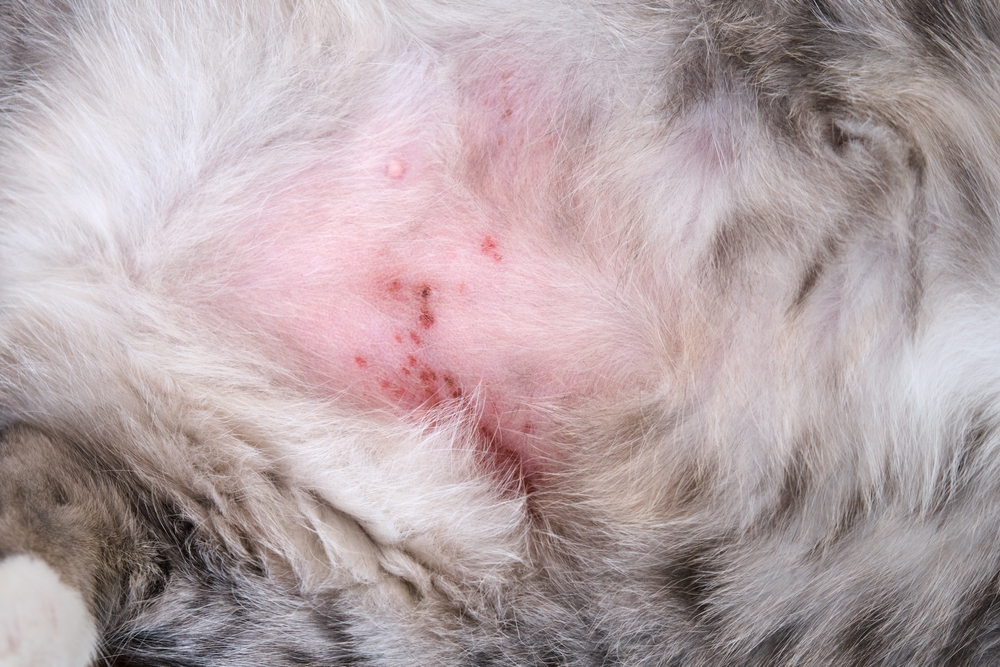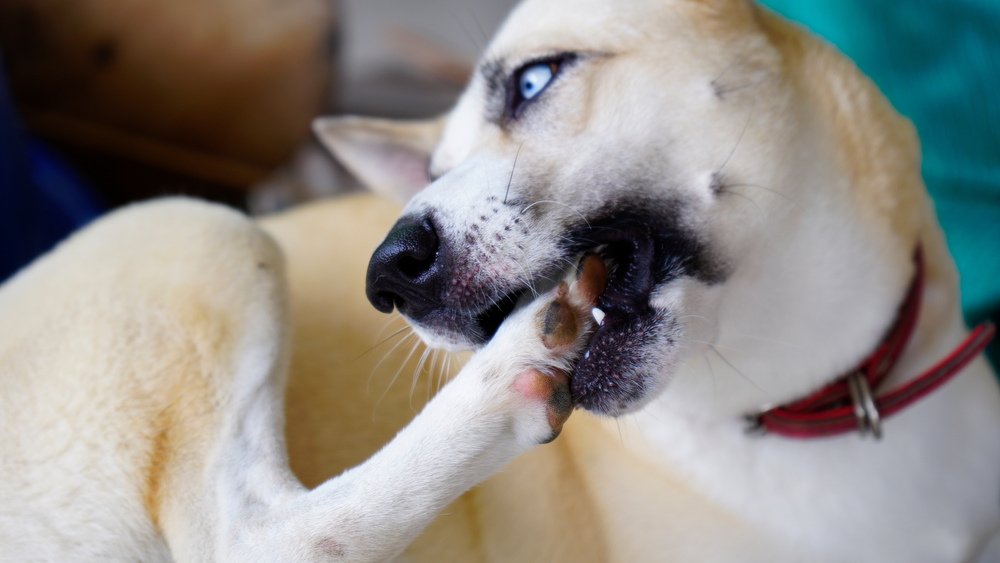While a person with allergies usually sneezes and has a runny nose and puffy eyes, identifying that a pet has allergies can be challenging. Pets don’t react to allergens the same way as people, and their skin—not their sinuses—is impacted. Our team at Family Pet Care describes common signs that indicate your pet has an allergy and provides you with tips to relieve their discomfort.
Common pet allergies
Pets can be allergic to many things that can impact their health and well-being. By understanding pets’ common allergy signs you can learn to recognize and address their potential allergy issues. Common pet allergies include:
- Flea allergy dermatitis (FAD) — FAD is an allergic reaction triggered by flea saliva proteins. A single flea bite can set off a severe allergic response in sensitive pets, causing intense itching, redness, and skin irritation. FAD can cause significant discomfort for pets and requires prompt intervention. Treatment focuses on eliminating fleas from your pet and their environment and alleviating itching and inflammation.
- Environmental allergies — Environmental allergies can arise from various triggers, including pollen, mold, dust mites, and grass. These allergens exist indoors and outdoors, making exposure difficult to avoid. Environmental allergies can be seasonal or year-round, and managing them often requires a combination of environmental control measures and targeted treatment to provide an affected pet relief.
- Food allergies — Food allergies are characterized by an adverse immune response to specific ingredients in your pet’s diet—primarily proteins such as beef, pork, poultry, or lamb. Identifying the culprit allergen often requires a process of elimination through dietary trials or allergy testing. Managing food allergies in pets typically involves switching to a diet that eliminates potential triggers and closely monitoring their response.
Signs your pet has allergies

Identifying allergies in pets can be challenging, as they predominantly exhibit allergic reactions through their skin. Your pet may be suffering from allergies if they exhibit any of the following signs:
- Persistent itching and scratching — One of pets’ hallmark allergy signs is relentless itching and scratching. If your pet is constantly scratching, licking, or biting their skin, especially in specific areas such as their paws, ears, or belly, they may have allergic dermatitis.
- Skin irritation and redness — Allergic reactions often cause a pet’s skin to become red, inflamed, and irritated. Look for red patches, rashes, or hives, particularly in areas where your pet scratches or chews excessively.
- Ear infections — Pets with allergies, particularly dogs, are prone to ear infections. If your pet shakes their head frequently and scratches at their ears, or their ears emit a foul odor, they may have an allergy.
- Sneezing and runny nose — While less common than pets’ skin-related allergy signs, respiratory signs, such as sneezing and a runny nose, may also indicate your pet has an allergy.
- Watery eyes — Allergic reactions can also affect your pet’s eyes, causing them to become watery and inflamed. Excessive tearing, redness, and eye discharge may indicate an allergic response in your pet.
- Gastrointestinal (GI) upset — In some cases, pets may experience GI symptoms as a result of allergies, including vomiting, diarrhea, or excessive flatulence. If your pet experiences recurrent digestive issues, they may have a food allergy or sensitivity.
- Paw chewing and licking — Allergic reactions can cause discomfort in your pet’s paws, leading them to chew or lick excessively. Check your pet’s paw pads for redness, swelling, or irritation, as these may indicate allergic dermatitis.
- Hair loss — Chronic allergies can lead to hair loss in affected areas, particularly where your pet scratches or licks excessively. If you notice your pet has bald patches or thinning fur, allergies could be to blame.
- Behavior changes — Pets with allergies may exhibit changes in behavior because of discomfort or distress. These changes may include agitation, restlessness, lethargy, decreased appetite, and reduced energy levels.
- Recurrent infections — Allergies can weaken your pet’s immune system, making them susceptible to infections. Keep an eye out for skin infection signs, urinary tract infection (UTI), or respiratory infection, as these may be exacerbated by underlying allergies.
Allergies can make your pet miserable, but our team at Family Pet Care can help. If your pet shows allergy signs, contact us to schedule an appointment, so we can find and treat the source of your pet’s discomfort.

